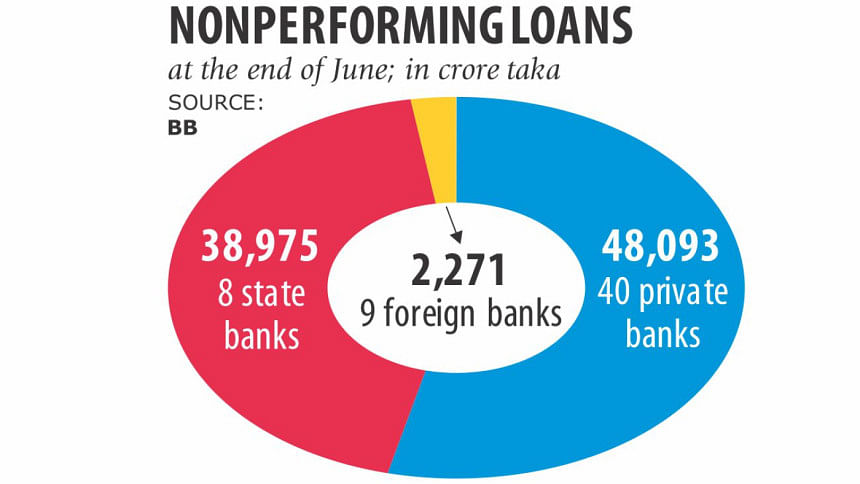Top management's failure at the heart of banking woes

The current ailments in the banking sector -- such as soaring non-performing loan, liquidity crisis, loan scams and forgery -- are due to lack of strong leadership, said a top official of the central bank.
"Ethical leadership practices at the top management level of banks can address these problems properly," said SM Moniruzzaman, deputy governor of Bangladesh Bank, while addressing a seminar yesterday at the Bangladesh Institute of Bank Management.
The BIBM organised the seminar where its director, Shah Md Ahsan Habib, presented a research paper titled "Leadership Approaches, Governance and Emotional Intelligence: The Case of the Banking Industry of Bangladesh".
In June this year, banks' nonperforming loans accounted for 10.41 percent or Tk 89,340 crore of the total loans given by the banking sector, up from 9.31 percent in December last year.
Good governance, which is intrinsically related to leadership, is a must for a bank to improve on its performance, Moniruzzaman said.
"The board of directors must be competent enough to understand the banking laws, regulations and constitutions of the banks."
In line with the ethical leadership practices, the board of a bank should be ethical enough and give independence to the top management of the bank for implementing the laws, regulations and constitutions, he said.
"A good leader in banks can transform a non-profitable bank into a profitable one. Similarly, a dishonest leader in banks can transform a bank from a profitable situation to a non-profitable one," he added.
According to a survey conducted by the BIBM, the current batch of leaders in the banking industry -- including the board of directors, top management, head of different departments and branch managers -- was rated "good" to "average" by bankers.
The banking sector has been suffering severely for lack of leadership, said Yasin Ali, supernumerary professor of BIBM. The paper recommended more training to develop motivational behaviour among the leaders.
Bank employees and management should be motivated and informed with the fact that they are ultimately accountable to the depositors -- the true owners and risk takers.
"Boards should also have such emotion for sound corporate governance practices," the report said.
In addition, efforts must be made to change the mindset about the term "authority" amongst the key bank stakeholders: it needs to be perceived as "responsibility" rather than "power", according to the report.
Bankers who will lead the bank should have clear knowledge about the banking activities, said Barkat-e-Khuda, former professor of the University of Dhaka.
A good relation is necessary between the top management and the board of the bank, said Helal Ahmed Chowdhury, supernumerary professor of the BIBM.
Only quality leadership can prevent crisis in the banking sector, he added.

 For all latest news, follow The Daily Star's Google News channel.
For all latest news, follow The Daily Star's Google News channel. 



Comments